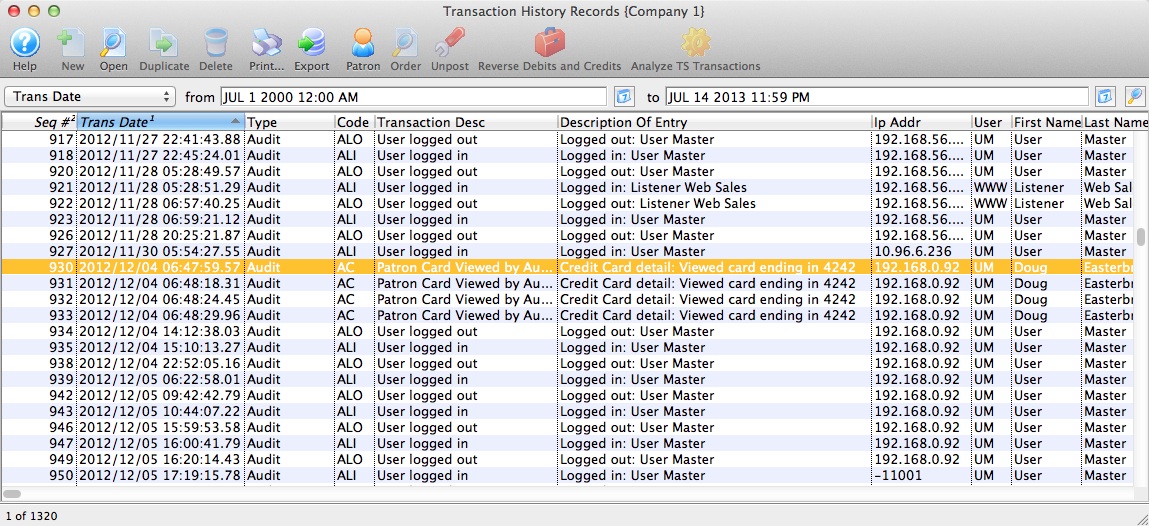

So I'm not sure this will do what you desire but it will lead you down some path to help. IT devices across your network create logs based on events. This will be pushed to the /etc/security/audit_control file once the system reboots.ĥ) To view the log you will need to manually go through the SSH (shell) and use the line "praudit /var/audit/2015xxxxxx.2015xxxxxxx" (where the x's are the filename) and this will dump to the screen the readable audit log. SQL Server auditing tool enables automatic logging of server based events or events in database level into different audit destinations like Application Log. An audit log, also called an audit trail, is essentially a record of events and changes.

Also, do not select "all" because it will fill up the logs very fast and this does not appear very useful. Unfortunately the aa and lo values do not appear to trap any GUI login action which are the default values, however any SSH attempt is logged. Now you need to be able to read the results.Ĥ) In a SSH (shell) enter the following command we may need to edit the audit_control file at /conf/base/security/audit_control and edit the file to record what you are looking to trap. So, the above steps get the auditing process started. There is a lot of boring reading and some good stuff but it will help you in the long run.Ģ) In the GUI add a tunable to automatically start the audit daemon:ģ)Now reboot your NAS or you could open a shell and enter "service auditd start". To set this value to No auditing, in the Properties dialog box for this policy setting, select the Define these policy settings check box and clear the Success and Failure check boxes. Failure audits generate an audit entry when an account logon attempt fails. As far as I can tell, this does not record logging into the GUI.Īssuming you are using FreeNAS 9.3.x and you have a clue about using the tunables, CRON, and SSH (or shell), do the following.ġ) Read chapter 16 here for an idea of how auditing works before you proceed. Success audits generate an audit entry when an account logon attempt succeeds.

Along with log in and log off event tacking, this feature is also capable of tracking any failed attempts to log in. When a user performs an action in the ESET PROTECT Web Console, the action is logged. Review your policy documents, make a payment, file a check or claim's status, complete an audit and more.
#Login audit windows#
For more details, please read this document Login Changes. Logon Auditing is a built-in Windows Group Policy Setting which enables a Windows admin to log and audit each instance of user login and log off activities on a local computer or over a network. Are you a Policyholder Login to our Insured Portal for 24/7 access to your account. Particular application: Displays audit logs for a specified Cherwell product. (PRI) to support and improve efficiency in the Nadcap auditing and accreditation system.Failed attempts: Displays audit logs for all failed login attempts.

All records: Displays audit logs for all records.View: Select the type of record audit logs you want to view (the list varies depending on which actions you choose to track/log):.Open the Audit Log ( CSM Administrator>Security>Audit Log).This might be required in your environment for compliance reasons. Use the Security Audit Log to track successful logins and logouts, and all attempted logins.


 0 kommentar(er)
0 kommentar(er)
